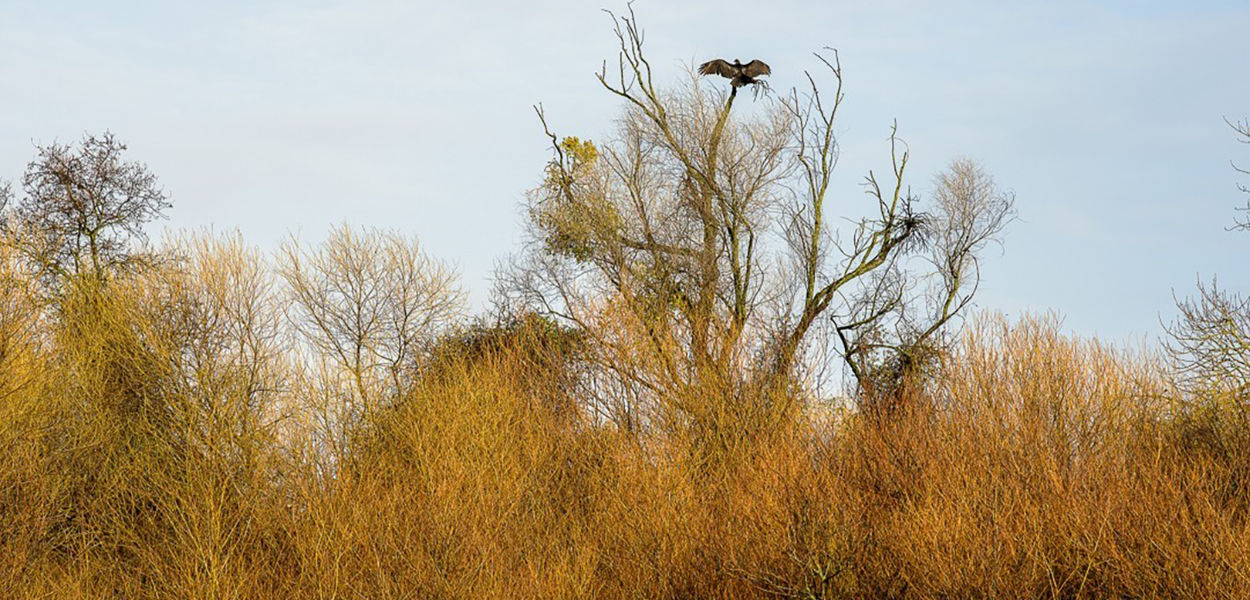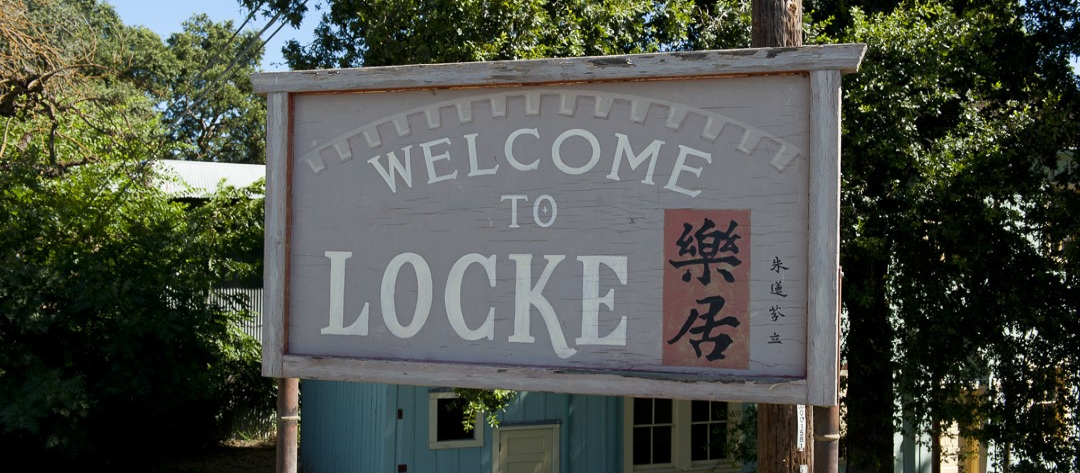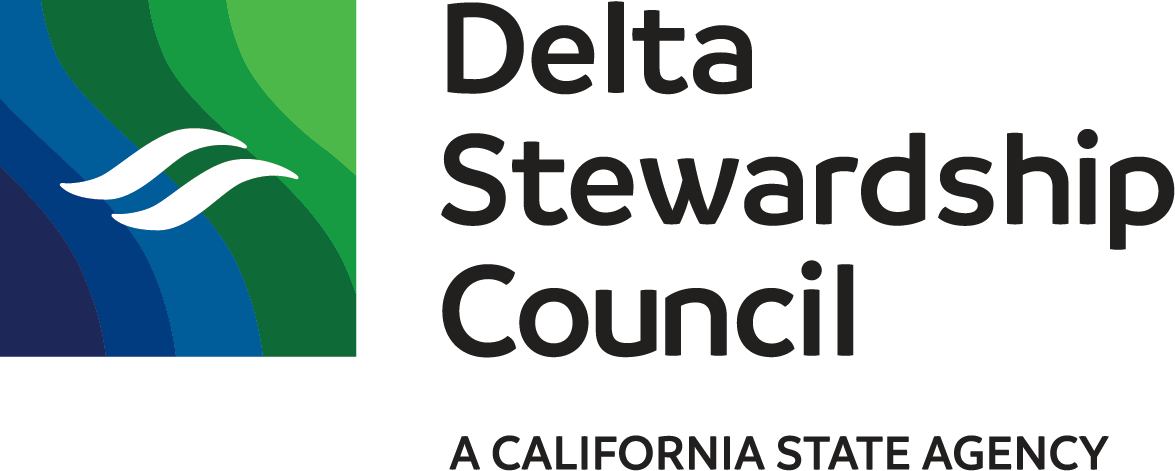
Photo of the Delta Meadows Park Property, courtesy of California State Parks in 2025.
More to Explore: Enhancing Recreation in California’s Delta
March 27, 2025
By Julie Lee, Amanda Bohl, Audrey Cho
The Sacramento-San Joaquin Delta region has long been known for its abundant recreation opportunities both on water and on land. The Delta’s recreational opportunities contribute to the Delta as an evolving place, a key component of the state’s coequal goals of water supply reliability and ecosystem health. On April 3, 2025, the Delta Plan Interagency Implementation Committee (DPIIC) will gather to emphasize the critical role of Delta recreation. Leaders from state and federal agencies will convene to learn about and tour the Delta Meadows Park Property located near the communities of Walnut Grove and Locke. Attendees will also discuss how DPIIC agencies can collaborate around the rollout and implementation of funds from the Safe Drinking Water, Wildfire Prevention, Drought Preparedness, and Clean Air Bond Act of 2024, also known as Proposition 4. Members of the public are invited to attend!
We will begin our day at the newly restored 1883 Clarksburg Schoolhouse, a physical embodiment of the north Delta’s sense of community and rich cultural resources. Participants will then tour the Delta Meadows Park Property and visit the Locke Boarding House guided by State Parks staff.
The Role of Recreation
By enacting the Delta Reform Act in 2009, the Legislature acknowledged the unique characteristics that make the Delta an area of statewide significance and a center for recreation. The Legislature found that the Delta’s hundreds of miles of meandering waterways, islands, productive agriculture, fisheries, wildlife, and recreational assets are invaluable and must be preserved (Water Code §1298). The Delta Plan acknowledges and celebrates these features. In particular, chapter five of the Delta Plan highlights the Council’s vision.1
Pertaining to recreation, the Delta Plan includes the following recommendations:
- DP R11 - Provide Recreation Opportunities at New Facilities and Habitat Areas Encourages the protection and provision of recreation facilities by State Parks and water management and ecosystem restoration agencies.
- DP R13 - Dedicate Funding to Improve Recreation Facilities Highlights the importance of adding or improving Delta recreation facilities, including State Parks’ completion of the Delta Meadows-Locke Boarding House project.
- DP R17 - Enhance Tourism Business by Supporting Recreation Infrastructure Encourages cities, counties, and agencies to collaboratively protect visitor-serving businesses as well as recreation and tourism infrastructure.
The Council tracks progress in achieving these Delta Plan recommendations through performance measures. Performance measure 5.6 monitors recreation opportunities, including parks, trails, and cultural resources available to Delta residents and visitors. The last completed recreation opportunity was in 2020. Performance measure 5.8 highlights Delta tourism, including publicly available lands. As of 2020, there were 58,274 acres of land in the Legal Delta and Suisun Marsh accessible to the public.
Conversion of the Delta Meadows Park Property into a state park directly advances these recommendations in protecting and highlighting the resources of the Delta as an evolving place.
Falling within State Parks’ Diablo Range District, the Delta Meadows Park Property encompasses approximately 500 acres, including portions of Snodgrass Slough. State Parks acquired the property over several years, from 1985 through 1999. Delta Meadows is undergoing a formal classification and general plan process to outline the property’s future recreational usage and operation goals.2 This planning process also includes the types of management and levels of protection needed for the property’s natural, cultural, and historical resources. Delta Meadows is currently open, and the public is encouraged to visit for hiking, fishing, and nature observation every day of the week.

Photo of the town of Locke, courtesy of California State Parks in 2025.
Cultural Resources
The Delta Meadows Park Property also includes the historic Locke Boarding House in the town of Locke. Acquired by State Parks in 2005, the Boarding House has a long and rich history. Constructed in 1909 under the name of the Jack Ross Boardinghouse, it quickly became a popular resting place for Chinese construction workers on the Southern Pacific Railroad. In 1915, the town of Locke was established and functioned for many years as a haven for Chinese culture, families, and seasonal farm laborers. The Boarding House was bought and operated by the Kuramoto Family from 1921 until their 1942 incarceration during World War II. In 2008, the Boarding House became a unit of the state park system and is now operated as a museum in partnership with the Locke Foundation. This historical location is open to the public on weekends.
Expanding Access
Consistent with the Outdoors for All initiative led by the California Natural Resources Agency, State Parks established the Waterway Connections Initiative (WCI). This initiative identifies and invests in inland water-related outdoor access for communities that may lack connection to nature but live near rivers, waterways, or water systems. To date, WCI has funded multiple projects in the Delta, including the general plan, classification process, safety repairs for the Delta Meadows property, and recreation facility improvements at Brannan Island State Recreation Area. This effort will continue to target funds toward key outdoor access needs through June 2027.
The Council is thrilled to shed light on essential Delta recreation and cultural resources and the importance of expanding access to these areas for all Californians. We are grateful to State Parks, the Locke Foundation, and Friends of the 1883 Clarksburg Schoolhouse for their collaboration in highlighting this effort on April 3. All interested parties are encouraged to attend and participate. More information about the DPIIC’s spring gathering can be found in the meeting notice. We hope you will consider joining us!
The Authors
Julie Lee, Council Chair
Amanda Bohl, Special Assistant for Planning and Science
Audrey Cho, Executive Fellow

